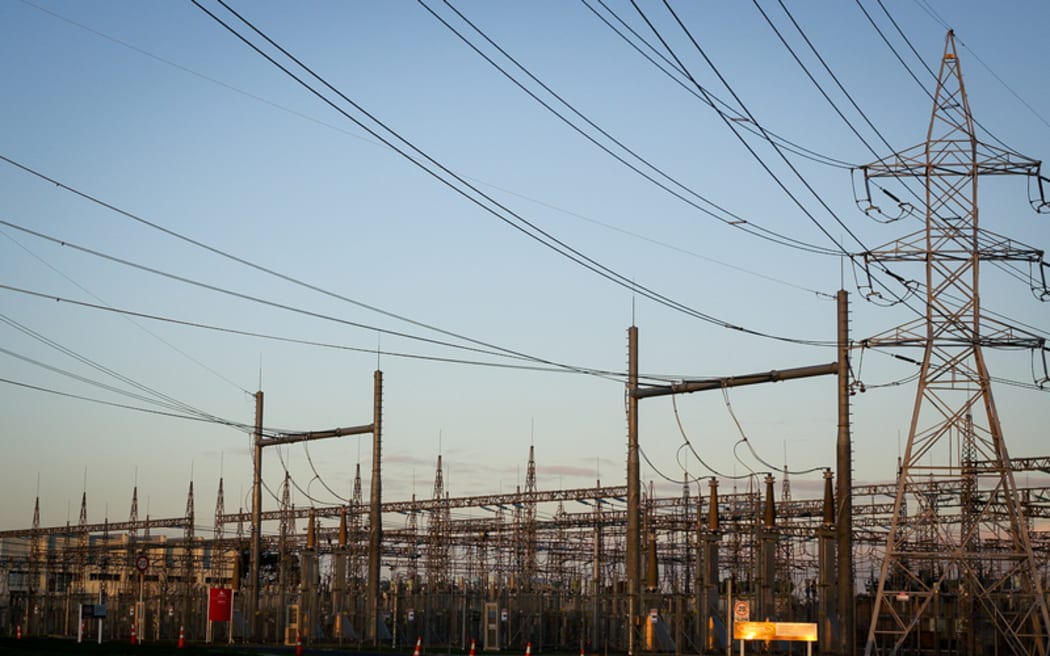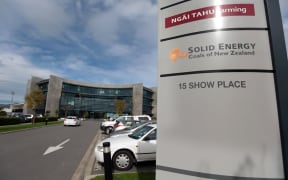Electricity generator and retailer Meridian Energy says New Zealand might have to develop another power station as early as 2019.

Photo: RNZ / Lauren Baker
Scarcely a month ago, the Electricity Authority found scores of projects were on hold, even though most had received resource consent.
They totalled 4500 megawatts of capacity, half of New Zealand's entire existing capacity capacity, but they were not being built because New Zealand already had too much power.
The only project actually being constructed had a capacity of just 7 megawatts.
Since then, Genesis Energy has announced the closure of its last two coal burning plants at Huntly. These total 500 megawatts, and together with the two earlier closures, take 1000 megawatts out of the system.
Last week, Contact Energy announced the closure of its 400 megawatt plant at Otahuhu, and earlier, Mighty River Power announced the decommissioning of its 140 megawatt gas plant at Southdown in South Auckland.
Meridian thinks this has changed the outlook for the country, reversing the received wisdom that New Zealand is awash with energy and will not need another power station for years.
At a briefing for its annual report yesterday, Meridian chief executive Mark Binns said 2019 might be the time for a new source of energy to be developed to make sure that there is enough power for all New Zealand.
"I think it would be fair to say that the announcements of Genesis and Contact over the past two weeks will focus the whole industry on what a post Otahuhu and Huntly world might look like, and what for each generator will be the most beneficial supply or demand side solution to a tightening market," he said.
"We have already started considering what the optimal solution will be for Meridian, and there are some interesting alternatives that we are already looking at."
Mr Binns would not give details on what these were, saying they were confidential aspects of company planning.
But chief financial officer Paul Chambers said the supply could be met by small scale projects, possibly including extensions to existing schemes.
There is also uncertainly over how much demand there will be for electricity, not least because of a continued question mark hanging over the Tiwai Point aluminium smelter.
Despite an agreement signed earlier this month, the smelter could still close in 2018, as long as it gives notice by the start of 2017.
The smelter uses one seventh of New Zealand's electricity, so if it closes there will be no need to build another power station or do much about demand side management either.
But if it shuts, then there might be a need to get moving fast.
Mr Binns sounded a pessimistic note the smelter's future.
"Pacific Aluminium, the Rio Tinto subsidiary that controls the smelter, has not resiled from its intention to sell its Australasian smelter assets, "he said.
"So in the circumstances, we are realistic that what we have achieved is only an extension of the earliest possible termination date until Jan 1 2018.
"I have no doubt that Pacific Aluminium will be back for another chat prior to January 1 2017 which is the first date it could provide 12 months notice of termination."
Mr Binns gave a warning that the negotiations next time around could be tough, and Meridian was likely to stand its ground in talks with smelter managers .
"Given the announcement of the intended closure of thermal plant over the last two weeks, it is difficult to envisage a scenario where there would be any compelling argument to consider any reduction to an already low (electricity) price"
Profit lift
The development came as Meridian bucked the downward trend set by Contact Energy on Monday and announced a lift in after-tax profits to $247 million in the year to June, a 7 percent increase on the previous year before.
The raised profit was due to higher wholesale prices and more sales of power to small business and irrigators, which offset lower retail prices due to intense competition.
Mr Binns said little things like signing up people quickly, and answering calls and emails promptly could make a big difference in retaining customers.
"Retail is a battle of inches. It's far cheaper to keep a customer than acquire a new one."
The company has reduced its investment plans and instead will return $625 million shareholders over the next five years, starting with special dividends totaling $137 million following the June year result.
In Australia, Mr Binns says the Prime Minister Tony Abbott's personal antipathy to renewables had harmed investor confidence, and Meridian had trimmed its investment plans across the Tasman to expanding its online Powershop retail brand.
Mr Binns said Meridian was also considering franchising Powershop to energy retailers in Britain this year.
"The attraction is obviously scale. And what we have is of interest to more than one Northern Hemisphere retailer. Some of these retailers, who want to differentiate themselves and be seen to be different, see an opportunity with Powershop."




